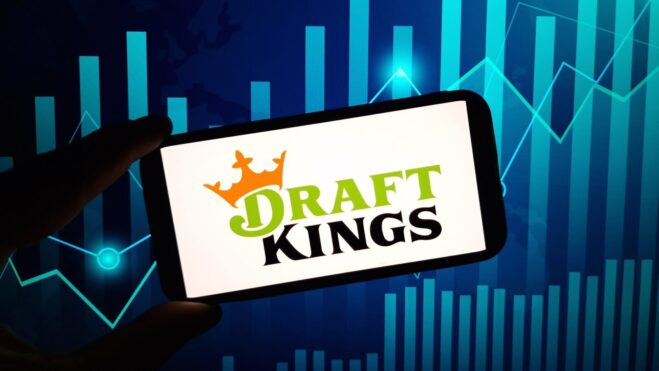Earnings+More: Recession Watch For The ‘Weak, Unprepared, And Over-Leveraged’ In Gaming
Initial fears over the impact of tariffs on the US economy have abated, but worries over the health of the economy and what that may mean for the gaming sector remain
4 min

In early April, just before the first quarter earnings season kicked into gear, many analysts were all but predicting an imminent recession — suggesting it was a question of if, not when.
Chicken Littles they may have proved to be — at least in the short term as the phrase Trump Always Chickens Out (the so-called TACO trade) become the market mantra for the post-Liberation Day retreat on tariffs.
But with sticky inflation, high interest rates, and persistent geopolitical uncertainty, the threat of an economic downturn still looms large, and gaming stocks are feeling the pressure.
Nowhere is this more evident than in Las Vegas. Wall Street continues to sound the alarm about the city’s vulnerability to macroeconomic weakness, especially given its reliance on consumer discretionary spending. This exposure has made U.S.-listed gaming stocks “uniquely out of favor,” according to the real estate services firm CBRE, due to the market’s heavy weighting toward Vegas-facing operators.
In a note published in early April, Bank of America slashed its forecasts for the Las Vegas Strip, citing “a more uncertain environment” as consumer behavior shows signs of weakening.
Certainly, the city’s iconic status and dependence on both domestic and international tourism leave it highly susceptible to any economic chill.
Land-based under pressure
It’s a familiar pattern: When recessions hit, casinos feel the pain. With travel, leisure, and entertainment among the first discretionary categories to be trimmed by belt-tightening consumers, Las Vegas has historically served as a barometer for the health of the American economy. And should a downturn become a reality, it is unlikely the effect on the city will be any different this time.
Operators with heavy land-based exposure, particularly those leveraged into destination gaming, could find themselves on the sharp end of a pullback in spending. While the strongest players may be resilient, weaker and more indebted rivals will be exposed.
“Recession finds out the weak, unprepared, and over-leveraged,” said Paul Leyland of gambling sector consultancy Regulus Partners, talking in April to Earnings+More. Excluding leaders such as Flutter and DraftKings from this categorization, he warned that “plenty of other competitors are all three.”
While the effects of a downturn on land-based operators are relatively well understood, the picture for online gambling is far less clear.
That’s in part because the last major recession, the 2008 Global Financial Crisis (GFC), occurred when online gambling was still in its infancy.
“iPhones were only just becoming mainstream, and the number of customers was increasing [roughly] 20 percent a year due to an early-stage adoption curve,” Leyland noted.
Back then, even in relatively mature online markets like the UK, a decline of five percentage points in the underlying growth rate still delivered double-digit revenue gains. It’s a reflection of where online gambling sat on the S-curve of adoption: new, fast-growing, and relatively resilient to broader macro drag.
That makes drawing firm conclusions today more difficult. Online sports betting and iCasino are far more entrenched than they were in 2009 when the recession ended, but, in the U.S., they are still a relatively new proposition and one still expanding.
If this geographic rollout were to pick up any speed, it may provide an offsetting tailwind. According to analysts at the advisory group Jefferies, even in a weak economy, overall gross gaming revenue for online sports betting could continue to grow at double-digit rates, as slower growth in mature states is balanced by faster gains in new or recently launched markets.
Recession as catalyst
Another factor that could shape the recession narrative for gambling is government behavior. When economic growth slows, governments often turn to new revenue sources, and that can mean loosening restrictions on gambling.
Jefferies flagged this possibility in its recent note, suggesting that economic weakness could act as a catalyst for online gambling regulation, particularly at the state level. The logic is simple: Online gambling is taxable and, in times of fiscal stress, the appeal of new tax revenue grows stronger.
“The incentive [to regulate online gambling] is far stronger today relative to the time of the GFC,” the analysts wrote, and “especially strong” in the U.S. given the recent proliferation of sweepstakes models and prediction markets.
Leyland supports this thesis, suggesting that a recession-triggered expansion into states like California or Texas would fundamentally alter the nation’s online landscape. “The online experience in the U.S. would be significantly different if recession triggered more online adoption,” he said. “Adding new states effectively creates an adoption curve.”
Jefferies estimated that simply bringing two new states online would be enough to offset the potential drag from an economic slowdown.
The limits of alternatives
However, not all online products are created equal. While recent buzz around sweepstakes casinos and prediction markets has energized investors and innovators alike, Leyland was skeptical about their ability to move the needle in recessionary conditions.
He argued that while these alternatives “add up to relatively big numbers across all 50 states,” they fall short when compared to real-money gaming products in regulated markets. “Per capita consumption where real money is available just does not compare,” he said.
In other words, the real growth story and real resilience lies in expanding regulated gambling, not in unorthodox or gray-area models.
In the online and offline arenas, a recession would act as a stress test for business models, capital structures, and customer loyalty. Just as over-leveraged or inefficient land-based operators may struggle, so too could digitally native companies that overextend or fail to acquire customers efficiently.
For the strongest players, however, a downturn may also present opportunity: to expand market share, consolidate weaker competitors, or capture newly regulated markets. The current phase of the U.S. online market, marked by heavy promotional spending and low profitability, may soon give way to a more sustainable operating environment, recession or not.
The gaming sector has always been cyclical, tied tightly as it is to consumer spending, tourism, and broader economic health. But with the U.S. market now straddling mature land-based operations and a fast-growing digital segment, the coming years could play out very differently from past cycles.
While fears of a downturn are justified and caution is warranted, there are also clear reasons for optimism. A macroeconomic chill may cool the Strip, but it could also light a fire under state-level regulatory reform and bring more consumers online.
As Leyland put it, “Adding new states effectively creates an adoption curve.” That curve may still prove steep enough to offset the coming headwinds — if the industry can stay nimble, focused, and well-capitalized.
Scott Longley is the editor-in-chief of the Earnings+More and Compliance+More newsletters..






